
Chimpanzees are one of the most intriguing species on our planet, sharing a remarkable similarity with humans. Predominantly found in Africa, these primates offer a window into the animal kingdom.
1. They Live in Africa
Chimpanzees are found in 21 African countries, from Tanzania in the east to Senegal in the west. They inhabit rainforests, woodlands, and even savannas.
There are four recognized sub-species of chimpanzee: eastern chimpanzee (P. troglodytes schweinfurthii found in East Africa), western chimpanzee (P. troglodytes verus found in West Africa), central chimpanzee (Pan troglodytes troglodytes found in Cameroon and Congo), and Nigeria-Cameroon chimpanzee (P. troglodytes ellioti found in Nigeria and Cameroon).

The chimpanzees in Tanzania are Eastern chimpanzees, which are the most common subspecies of chimpanzee. They are an integral part of the ecosystem, residing in protected areas like the Gombe Stream and Mahale Mountains National Parks.
2. Chimps are Our Closest Relatives
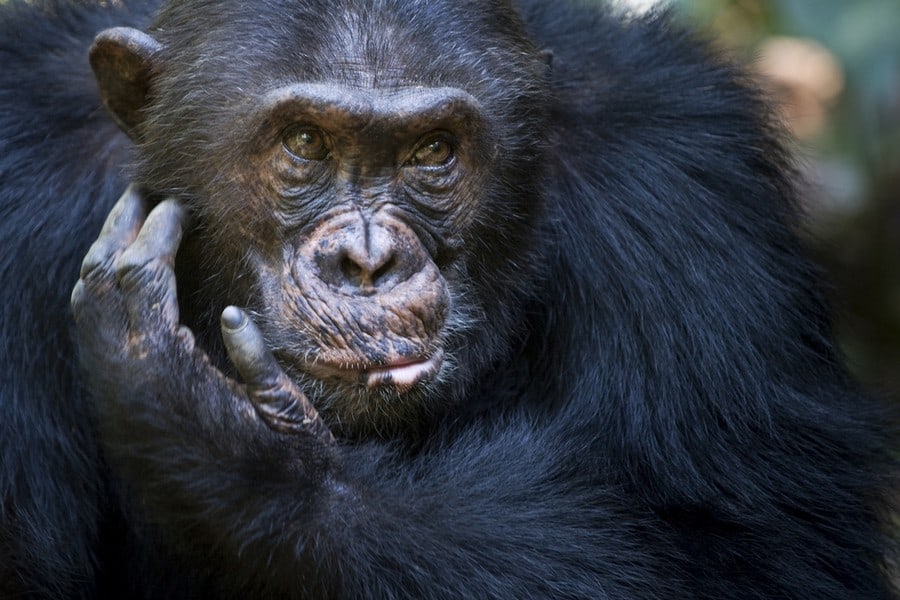
Chimpanzees share about 98% of their DNA with humans, making them our closest living relatives in the animal kingdom. This genetic closeness translates into several similarities in behavior and biology. For instance, chimpanzees can express a range of emotions, show empathy, and even exhibit signs of self-awareness, much like humans. They also have the ability to learn and adapt.
3. They’re Very Smart
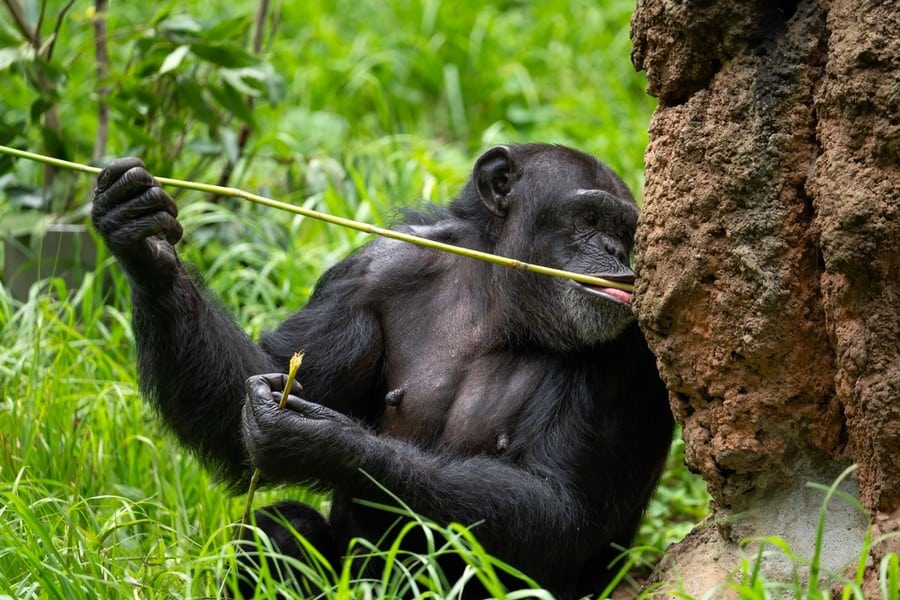
Chimpanzees are among the world’s most intelligent animals, and their cognitive abilities are often compared to those of human children. Chimpanzees demonstrate problem-solving abilities, similar to those of human children aged 3 to 5 years. They can solve complex puzzles, use tools to obtain food, and navigate social situations. For instance, chimps are known to use sticks to fish for termites, use rocks to crack open nuts, and use leaves as makeshift sponges to soak up water from hard-to-reach places. These behaviors require understanding of both the tool and the problem at hand.
Chimpanzees have also shown they possess a working memory comparable to human children. They can remember the location of objects and use this information to make decisions. This skill is evident in both wild and experimental settings.
4. Chimps Have Incredible Strength
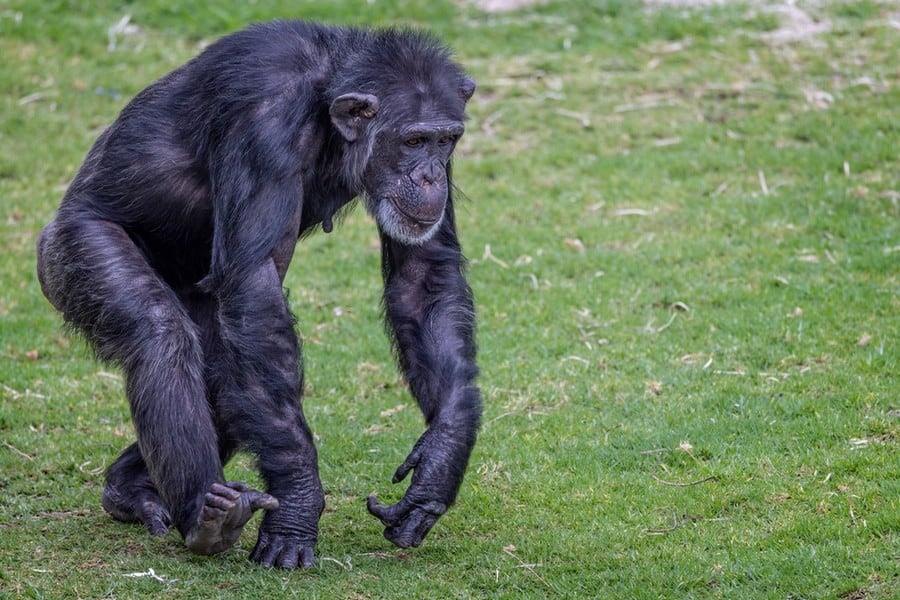
Chimpanzees are very strong. When compared to humans, chimpanzees have a higher proportion of fast-twitch muscle fibers, contributing to their superior strength. These fibers provide quick, explosive force, enabling chimps to perform physically demanding tasks with ease. They are estimated to be about 1.5 to 2 times stronger than an average human.
An adult chimpanzee typically stands about 3 to 4.5 feet tall when on two feet and weighs between 88 to 130 pounds, with males being larger than females. Their size and agility are perfectly suited for their arboreal lifestyle in the forests.
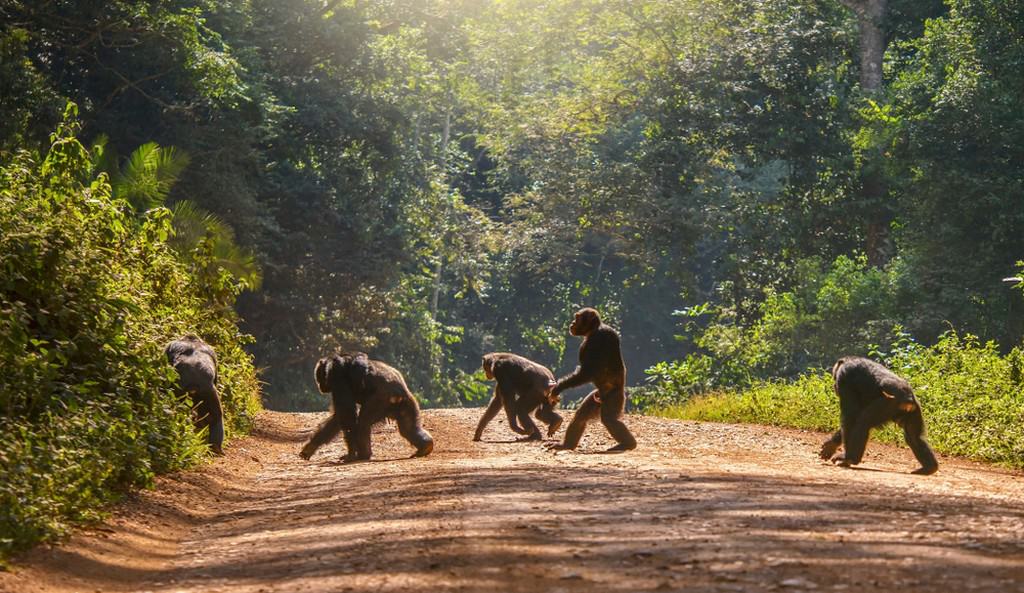
Chimpanzees are not only strong but also quite fast. On the ground, they can reach speeds of up to 25 miles per hour. Interestingly, chimpanzees are not natural swimmers and generally avoid water. Their body structure, with a more massive upper body and shorter legs, makes swimming difficult for them. They also lack the natural inclination or need to swim in their natural habitats.
5. Chimps Live in Large Communities
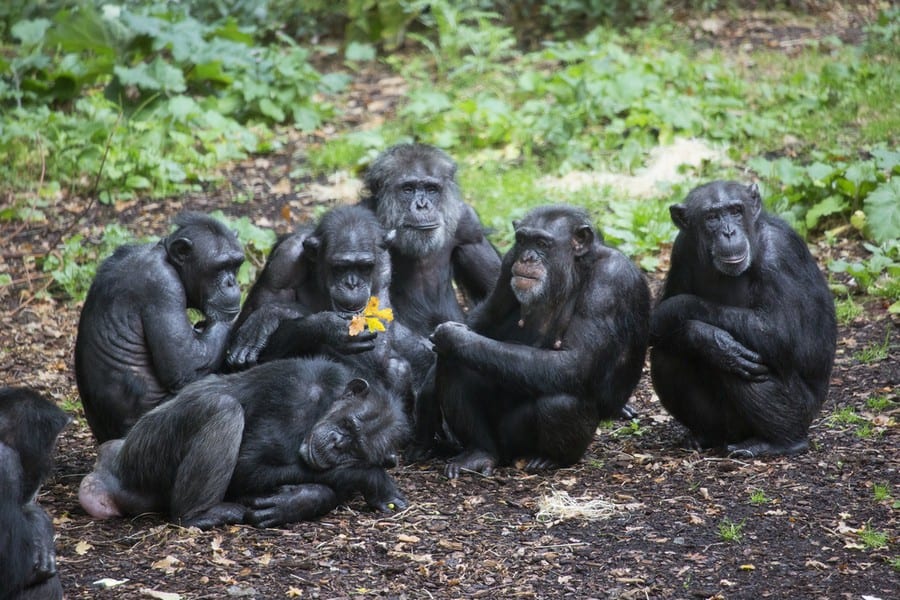
Chimpanzee communities are fascinating. A community can have up to 100 members, but they often split into smaller groups for daily activities like foraging or grooming. These primates have a complex social hierarchy, with an alpha male leading the group. The alpha male is not always the strongest physically but often the most intelligent and capable of maintaining alliances. These social dynamics are crucial for the stability and survival of the group.
Chimps use a system of vocalizations, facial expressions, and body language to communicate. They have specific sounds for different situations – alarm calls for danger, soft grunts when they find food, and loud hoots during social gatherings. These sounds vary in pitch and intensity, conveying different meanings. Studies have shown that chimpanzees can learn sign language or symbols to communicate with humans.
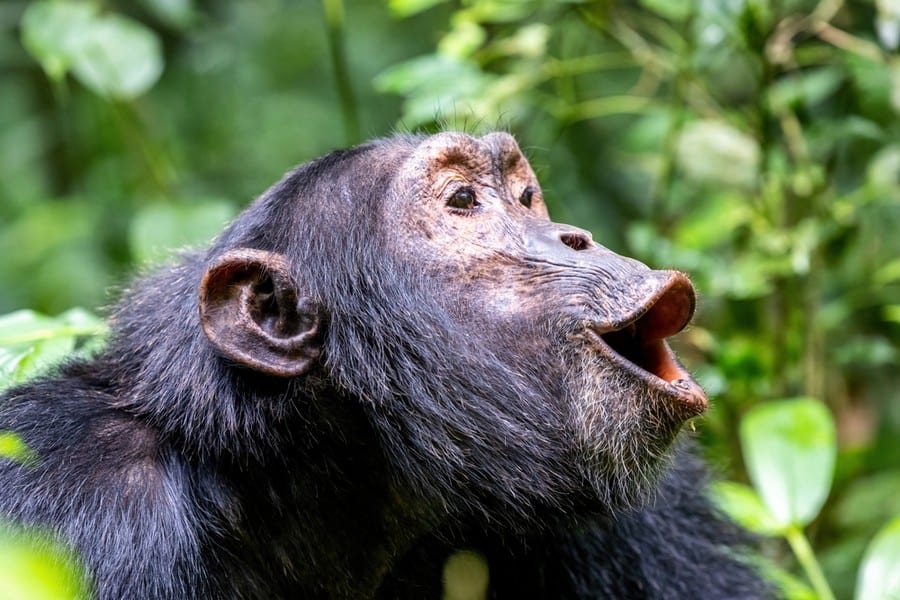
Chimpanzees exhibit a wide range of emotions, including joy, anger, grief, and empathy. They comfort each other in times of distress, showing a level of emotional intelligence that is rare among animals. Observations of chimpanzees mourning the loss of a group member or caring for orphaned infants highlight their capacity for deep emotional connections.
6. They Have a Lot of Enemies
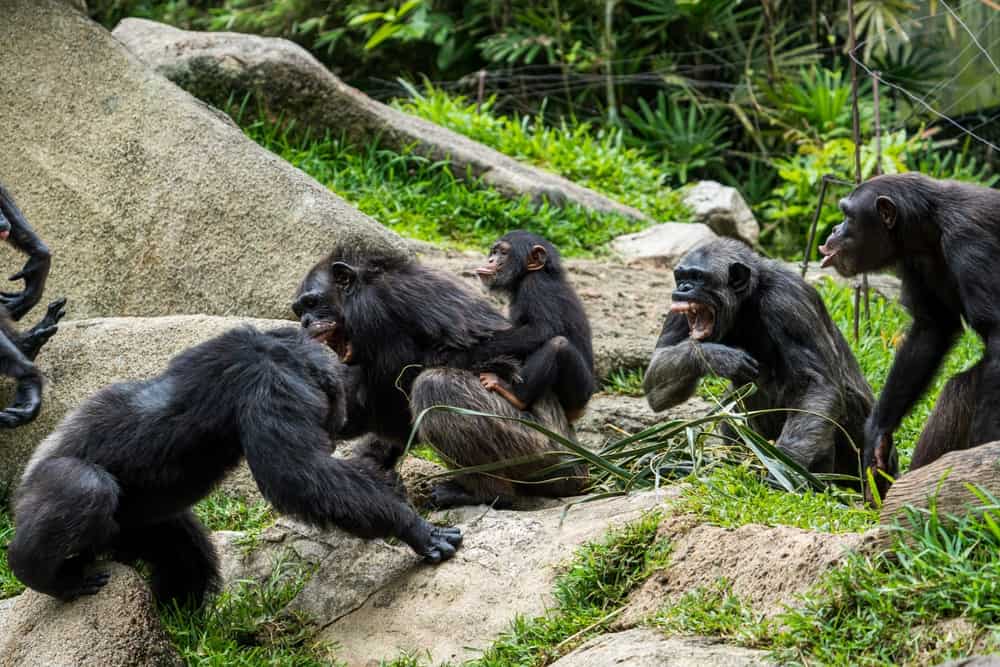
While generally social animals, chimpanzees can exhibit deadly behavior towards members of their own species. Male chimpanzees are more commonly involved in aggressive encounters that can lead to lethal outcomes. These confrontations can occur within their own group or with members of neighboring chimpanzee communities. Territorial conflicts are among the most common reasons for such violent encounters, as chimpanzees are known to be highly protective of their group’s territory.
Chimpanzees also face other formidable predators in the wild. In the dense foliage of the African rainforest, leopards are capable of ambushing and overpowering even the strongest apes. While they might target younger and more vulnerable members of the ape families, a determined leopard can pose a serious threat to adult chimpanzees and gorillas as well. On the savannah, lions present a significant danger to chimpanzees venturing out of the forest cover. Besides these big cats, chimpanzees also face threats from other large predators like crocodiles, and pythons.
7. Chimps Have a Varied Diet
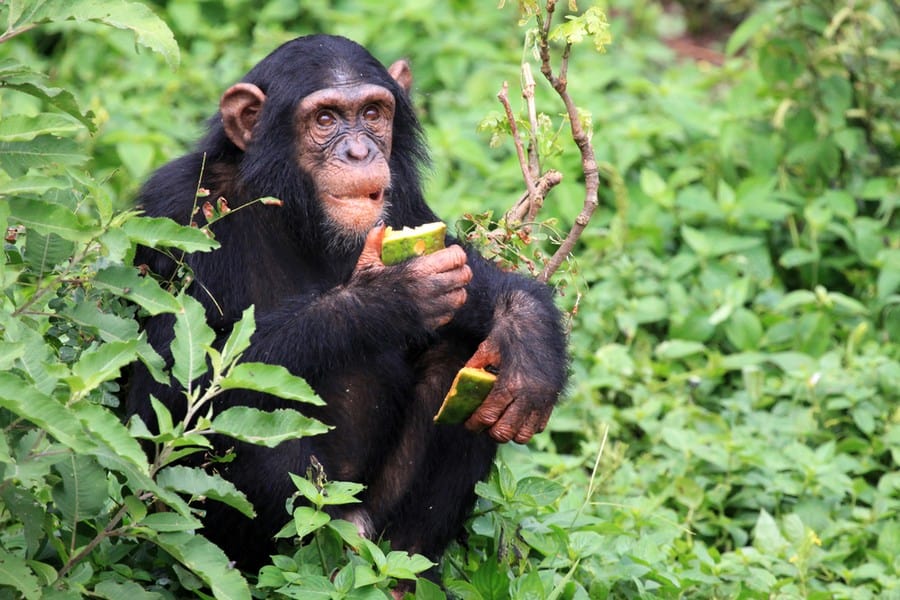
Chimps are omnivores, but their diet primarily consists of plant-based foods. They eat fruits, nuts, seeds, flowers, and leaves. However, they also hunt and eat meat occasionally, preying on smaller animals like monkeys or bushbucks. Insects like termites and ants are also a part of their diet. Their diverse diet plays a role in seed dispersal, aiding in forest regeneration.
8. They Have a Long Childhood
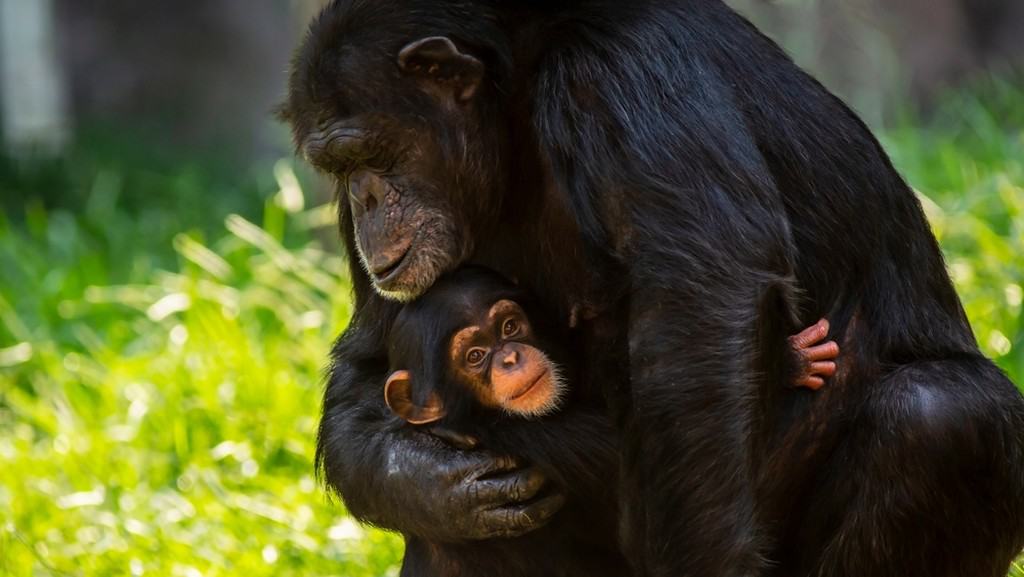
Chimpanzees have a prolonged childhood, staying close to their mothers for about 7 years. During this time, they learn essential life skills, such as foraging for food, building nests, and socializing within the community. This extended period of learning and development is crucial for their survival in the social structure of their communities.
9. Chimps Build Nests Every Night
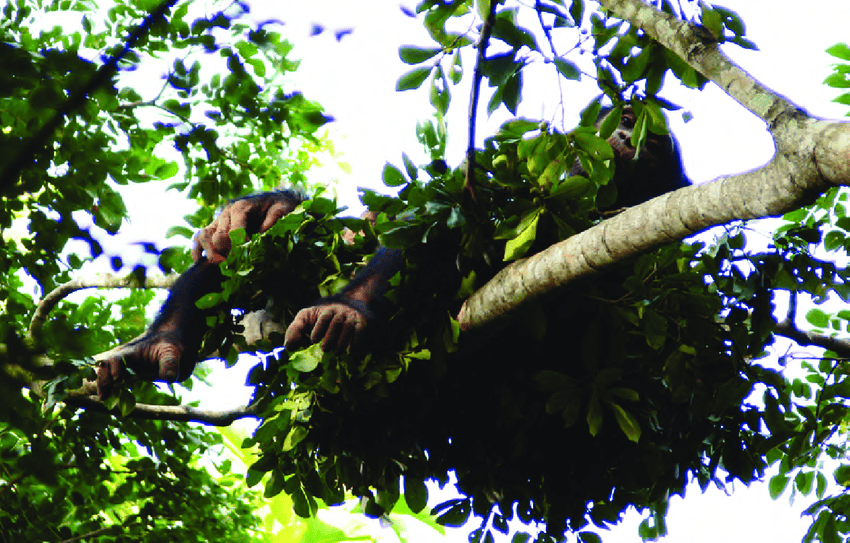
Each night, chimpanzees build new nests to sleep in. Chimpanzees build nests for several important reasons, primarily related to safety, comfort, and health. These nests, often constructed high in the trees, serve as their sleeping quarters. By bending and weaving branches and leaves together, they build nests that provide a comfortable and stable platform. They act as a cushion against the hard tree branches, and the leaves provide additional insulation, helping to regulate temperature during the night.
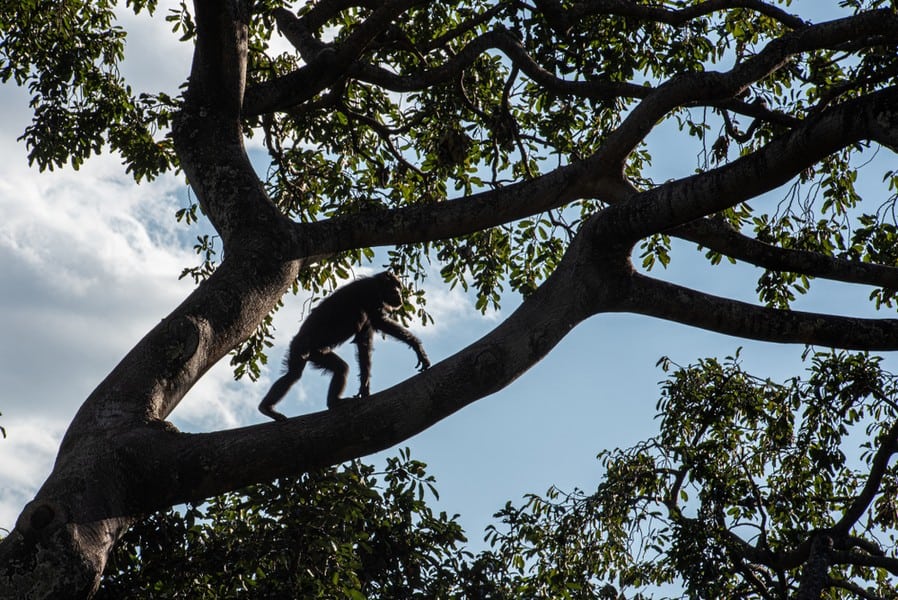
10. Jane Goodall’s Contributions
The work of Dr. Jane Goodall has been pivotal in increasing our understanding of chimpanzees. In the 1960s, she began her groundbreaking research in Gombe Stream National Park, Tanzania. Her observations revolutionized our knowledge about chimpanzee behavior, especially their use of tools, social interactions, and emotional complexity.

Sadly, chimpanzees are facing numerous threats, primarily due to human activities. Habitat loss from deforestation, illegal wildlife trade, and poaching are significant threats to their existence. Diseases like Ebola also pose a risk to their populations. Conservation efforts, especially in countries like Tanzania, are vital to protect these magnificent creatures and their habitats.
Do Chimpanzees Attack Humans?
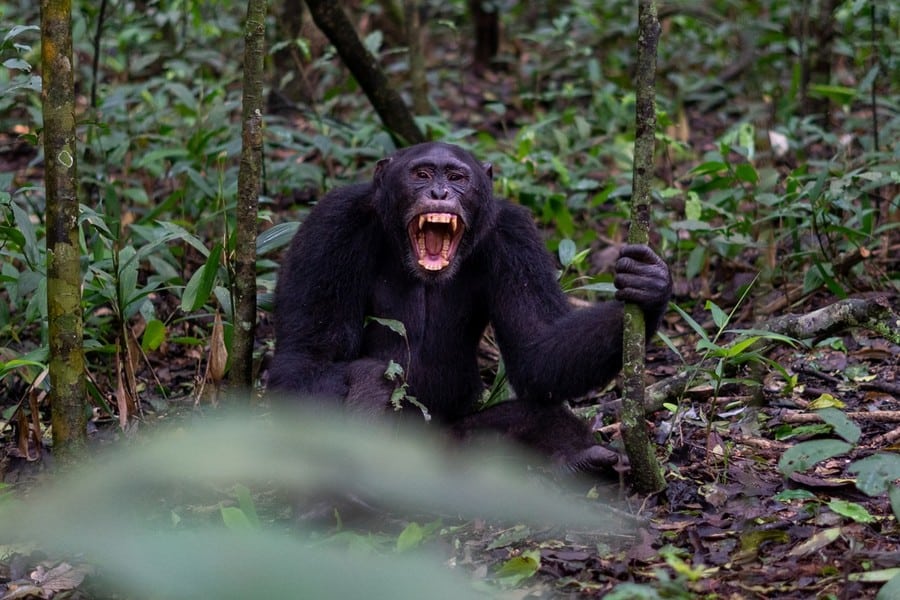
In general, chimpanzees are wary of humans and tend to avoid contact. Most chimpanzees in the wild will flee rather than confront humans. When visiting areas where wild chimpanzees live, it is crucial for humans to maintain a respectful distance, follow guidelines set by wildlife experts, and avoid behaviors that could be perceived as threatening or invasive by these animals.
Chimpanzee attacks on humans are rare but can occur. Like many wild animals, chimpanzees may attack if they feel threatened or provoked. Human encroachment into their natural habitats, such as through deforestation or hunting, can lead to situations where chimps feel cornered or endangered, potentially triggering an aggressive response.
In some areas, chimpanzees have become habituated to human presence, especially in regions frequented by researchers or tourists. While habituation can lead to peaceful coexistence, it can also reduce the natural fear of humans in chimpanzees, potentially leading to unpredictable interactions.
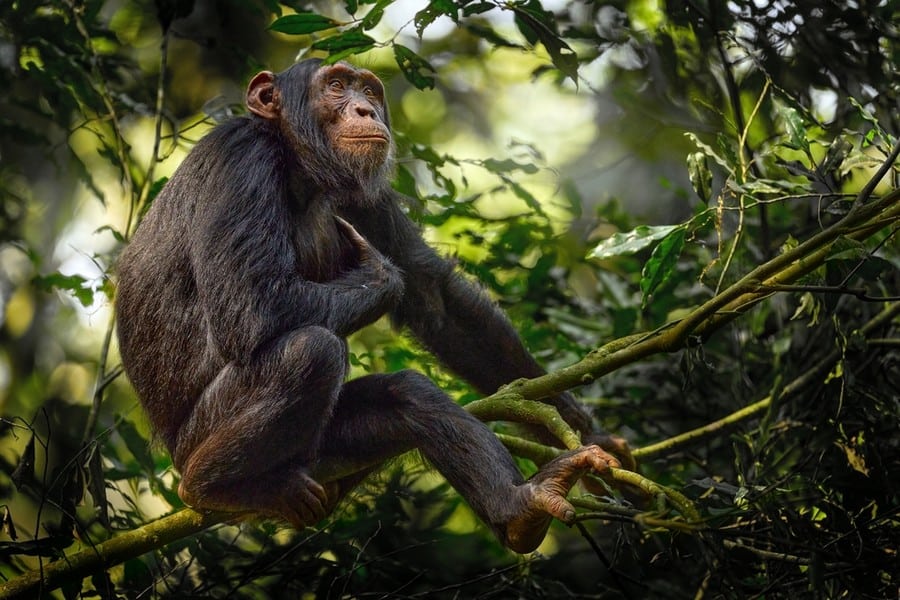
Chimpanzee Quick Facts
- Scientific Name: Pan troglodytes
- Common Name: Chimpanzee
- Size: Approximately 3 to 4.5 feet tall (when standing upright)
- Weight: 88 to 130 pounds (males generally heavier)
- Lifespan: 40–50 years in the wild
- Diet: Omnivore (includes fruits, nuts, seeds, leaves, insects, and occasionally small animals)
- Habitat: Central and West African rainforests, woodlands, and savannas
- Conservation Status: Endangered




























































